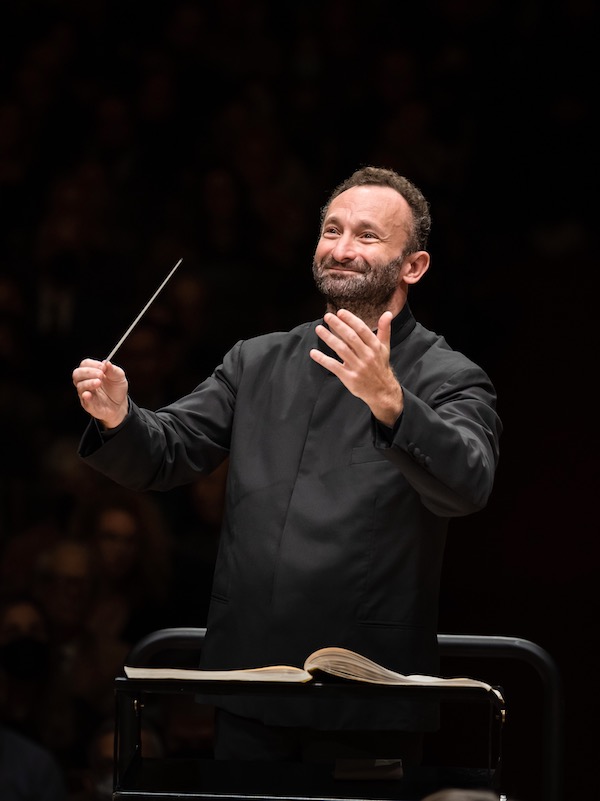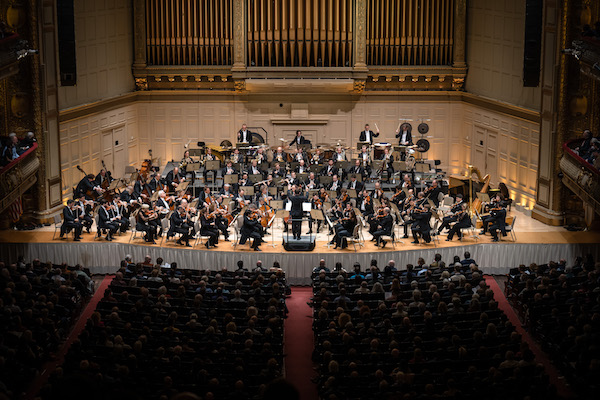Electrifying Berlin Philharmonic revives a neglected Korngold masterpiece
In the common telling, Erich Wolfgang Korngold was, like Felix Mendelssohn before him, born a genius only to die a talent. The reality, while far more complex, is, ultimately, kinder: Korngold’s abilities never faltered even if, stylistically, his music did fall out of step with the post-World War 2 zeitgeist.
It didn’t help that his association with Hollywood—the Vienna-born Korngold, while in exile from Nazified Europe, all but defined the modern film score—tainted his contemporary reputation as a serious composer. Since Korngold’s death in 1957, however, the winds of taste have shifted and, today, only the most obdurate would argue that the first verdict (uttered by no less an authority than Gustav Mahler) was, all along, the correct one.
Kirill Petrenko and the Berlin Philharmonic (or as they prefer, Berliner Philharmoniker) certainly wouldn’t count among the dissenters, at least not on the merits of the electrifying interpretation of Korngold’s Symphony in F-sharp they offered Sunday night in their Celebrity Series-presented concert at Symphony Hall. The culminating item on the orchestra’s first local appearance in six years, theirs was a reading of blistering intensity and expressive rigor.
Finished in 1952 and premiered two years later, Korngold’s symphony is decidedly traditional in form. The first of its four movements unfolds like an unsettled funeral march, while the Technicolor second is a seemingly carefree scherzo, though one with menacing undertones rumbling just beneath its surface. Thereafter comes a searing Adagio—truly one of the great slow movements in the canon—followed by a boisterous finale that seems to toss all cares into the wind.
Looks are deceiving, however, as echoes of previous movements intrude on its jaunty meanderings. Yet at the very end Korngold reveals the materials of this Allegro to have been developed from music that’s been heard before. The way ahead, he seems to be suggesting, isn’t by forgetting or ignoring the past. Rather, it’s by coming to terms with it and repurposing its lessons to some useful end.
That’s a charged, dramatic proposition. But theatrical sensibilities mark much of this lushly tuneful Symphony, from the Moderato’s leaping (and falling) sevenths to the Scherzo’s amorphous wash of harmonies and the slow movement’s discreetly pungent dissonances. Throughout, the melodic line holds sway and not even Korngold’s astonishing command of instrumental sonority can distract from the score’s narrative focus.
Ultimately, as one wit in my vicinity put it during the tumultuous ovation that followed the Berliners’ performance, the piece is “the symphony John Williams has been spending his life trying to write. Only better.” No argument here.
Petrenko, making his Boston debut as the Philharmonic’s chief conductor, drew playing from his forces that mixed power and delicacy in equal measure. Textures were lucid. The music’s busy counterpoint danced. Tempos flowed with galvanic purpose.
Every section of the orchestra took advantage of its moments to shine: blazing brasses in the outer movements, soaring horns and nimble woodwinds in the second, frolicking strings in the fourth. It’s no surprise, then, that the orchestra’s cumulative effort was towering, be that in the Moderato’s swashbuckling climaxes, the Scherzo’s cathartic refrains, or the Adagio’s devastating denouement.
Throughout, Petrenko provided his players a combination of flexibility (many of the orchestral solos, especially in the slow movements, were seemingly shaped with complete freedom) and control. They responded with vigor, delivering a performance of technical precision, structural clarity, and expressive honesty—even the Moderato’s silences shivered with intensity—that one rarely encounters in the concert hall. Suffice it to say, conductor and orchestra grasped the full measure of this score’s pathos, tragedy, and hope.
While neither of the program’s other selections were so emotionally fraught, both tied in neatly to the Korngold.
Andrew Norman’s Unstuck, a raucous curtain-raiser from 2008, offered a roundabout film-music connection. One of the composer’s great heroes is Williams and this piece, with its jump-cut-like echoes of his idol, Wagner, Webern, Xenakis, and others certainly sounded cinematic. Petrenko and the Berliners delivered an impressively light-footed account that, for all its density, remained texturally lean and, in its neo-Debussyian coda, mysterious.
Mozart’s Violin Concerto No. 1 represented the night’s other former child prodigy. Neither as sophisticated nor as demanding as his better-known Third or Fifth Concertos, Sunday’s performance of the First nevertheless benefited from Philharmonic first concertmaster Noah Bendix-Balgley’s dexterous and spirited solos, as well as his tasteful, idiomatic cadenzas.
A reduced contingent of strings and winds provided an accompaniment that was unapologetically modern in sound but consistently graceful and dancing in character. The Adagio, with its exceptional tonal blend and articulative unanimity, was rightly breathtaking.
Called back multiple times, Bendix-Balgley offered a pair of klezmer tunes as an encore. He fiddled (and sang), feet throughout the hall stomped, the house came down. Somewhere in the next world, one hoped, Korngold was taking it all in, vindicated once and for all.
The Celebrity Series presents Víkingur Ólafsson playing music by Mozart, Haydn, C.P.E. Bach, Domenico Cimarosa, and Baldassare Galuppi at 8 p.m. November 29 at Pickman Hall. celebrityseries.org
Posted in Performances






